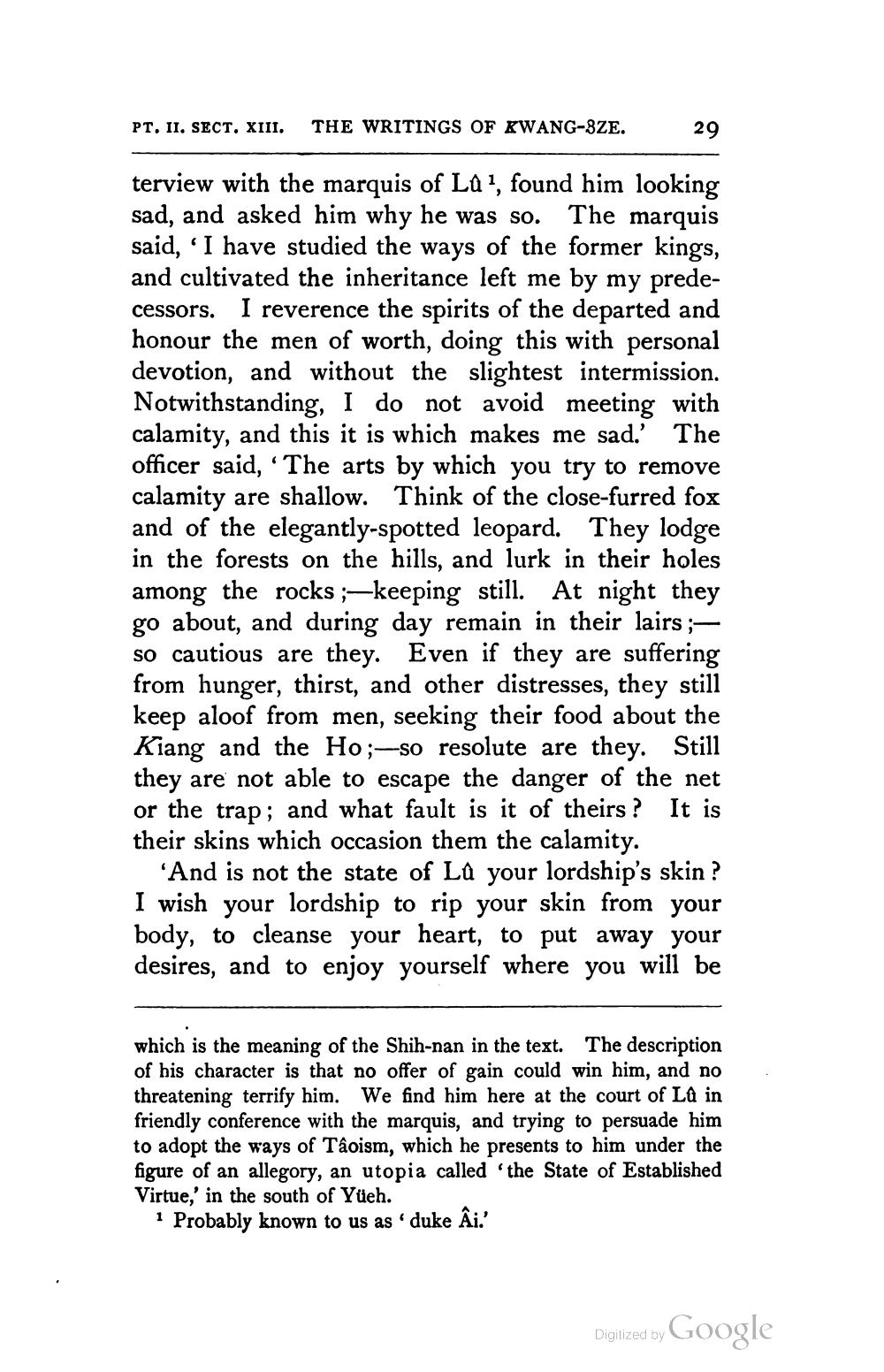________________
PT. 11. sect. XIII. THE WRITINGS OF KWANG-SZE.
29
terview with the marquis of La 1, found him looking sad, and asked him why he was so. The marquis said, 'I have studied the ways of the former kings, and cultivated the inheritance left me by my predecessors. I reverence the spirits of the departed and honour the men of worth, doing this with personal devotion, and without the slightest intermission. Notwithstanding, I do not avoid meeting with calamity, and this it is which makes me sad.' The officer said, “The arts by which you try to remove calamity are shallow. Think of the close-furred fox and of the elegantly-spotted leopard. They lodge in the forests on the hills, and lurk in their holes among the rocks ;-keeping still. At night they go about, and during day remain in their lairs ;so cautious are they. Even if they are suffering from hunger, thirst, and other distresses, they still keep aloof from men, seeking their food about the Kiang and the Ho;—so resolute are they. Still they are not able to escape the danger of the net or the trap; and what fault is it of theirs ? It is their skins which occasion them the calamity.
'And is not the state of Là your lordship's skin ? I wish your lordship to rip your skin from your body, to cleanse your heart, to put away your desires, and to enjoy yourself where you will be
which is the meaning of the Shih-nan in the text. The description of his character is that no offer of gain could win him, and no threatening terrify him. We find him here at the court of Lâ in friendly conference with the marquis, and trying to persuade him to adopt the ways of Taoism, which he presents to him under the figure of an allegory, an utopia called 'the State of Established Virtue,' in the south of Yüeh.
1 Probably known to us as 'duke Ai.'
cui.
Digitized by Google




